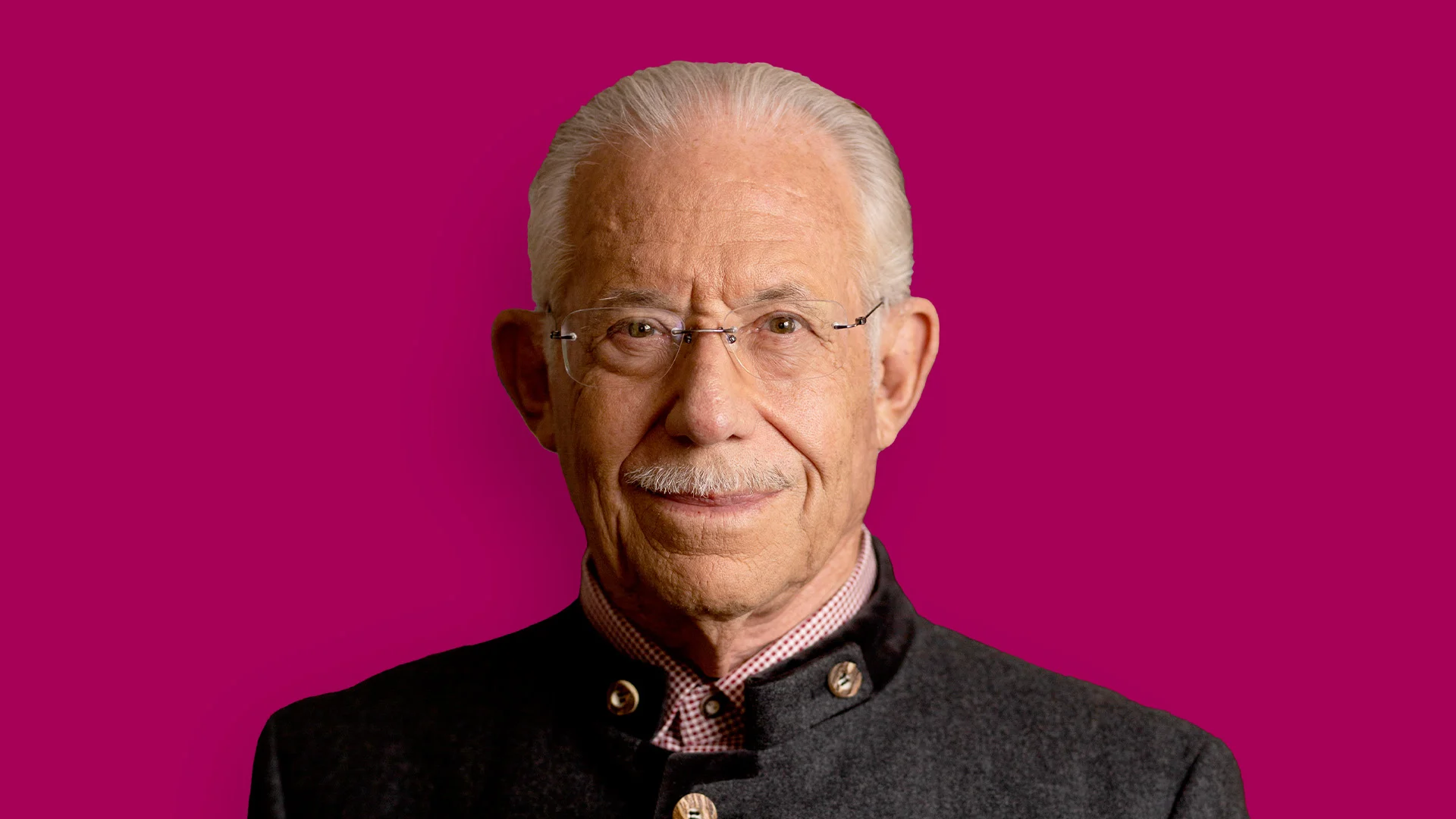
Overview
A pioneer in biotechnology and prolific author, William Haseltine, PhD, has achievements including sequencing the human genome, milestone work in cancer, HIV/AIDS, genomics and COVID-19, founding more than a dozen biotech companies and reducing health disparities.
Halsetine's insights and advice for those pursuing the biotech enterprise
Production costs. Treatment accessibility. Message communication. These topics are just some on the minds of life science entrepreneurs starting their own companies. Who better to get advice from than Bill Haseltine, PhD, Chair and President of ACCESS Health International? A pioneer in biotechnology and prolific author, Haseltine’s achievements include sequencing the human genome, milestone work in cancer, HIV/AIDS, genomics and COVID-19, as well as founding more than a dozen biotech companies.
Today, Haseltine is most committed to reducing health disparities by eliminating obstacles to healthcare and improving access. At a Tuesday Talk in April 2024, he spoke with Cure about his career and shared pearls of knowledge for those in the biotech world. Here are a few take-aways Haseltine shared during the discussion.
1. You don't need to spend a lot on healthcare costs to achieve success. But you do need access.
Haseltine and ACCESS Health International are committed to the global elimination of hepatitis C. And it shouldn't take a lot of money to do it, he noted, sharing Egypt as one success story. "Hepatitis C treatment in the United States costs $20,000. However, if you're in Egypt, it costs $39. And if you're in India, it costs $25," noted Haseltine.
The World Bank loaned the Egyptian government $250 million, which the health minister and president of Egypt decided to use to eliminate hepatitis C. "And they did it in eight months," noted Haseltine. "They had the highest incidence in the world. When you have the president and the health minister on board and you have the knowledge and the right price, you can do a lot to handle very basic health problems."
Haseltine noted that it's important to have a healthcare system that can take care of a whole country. Access is key. Everybody 12 years and older in Egypt got tested and treated for hepatitis C, free of charge.
"We can come up with a lot of solutions, but they won't actually benefit most of the people in this country because the healthcare system is not equitable," he explained. "Even people who are knowledgeable, well-educated and wealthy might not get the best care they need. We have a very complex system.”
"Governments look at healthcare as a responsibility, and the private sector looks at it as an opportunity," he continued. "It's not only important for a healthcare system to have drugs that are affordable. They also have to be accessible."
2. Diseases are perceived as more important once money is put behind them.
Haseltine described how when HIV/AIDS first emerged, it was not viewed as important. The disease was considered a social problem that affected gay and Black individuals, and people were afraid. Star power helped change things for the better.
"When Princess Diana held a baby with AIDS and hugged a man with AIDS, that changed things almost as much as science did," Haseltine contended. And when he and the actress Elizabeth Taylor met with U.S. senators to answer their questions about AIDS, it piqued their interest and led to hundreds of millions of dollars in funding.
"The moment there was money, AIDS became a very interesting problem, and people began to fight," he recalled. "That was a real lesson for me. If there is money, they will come."
3. RNA costs less to make than proteins — and that could translate to less expensive therapies.
Haseltine noted that RNA-based technologies may lead to less expensive pharmaceutical products than those that require the manufacture of a protein.
"Proteins are expensive to make. The cheapest price for making a vaccine or protein is $400 or $500 a kilogram. That's not a problem if you're going to charge $20,000 for a drug, but it is a problem if you're only going to charge $10," he contended. "RNA is very cheap to make. So if we can replace our protein and antibody drugs with RNA, that would be terrific." Less expensive medications could improve access to those treatments for more people.
4. Biotech CEOs don't sell drugs — they sell hope.
The CEOs of biotech companies need to have a broad set of skills. And if they don't have all of the skills, they need to hire those who do.
"CEOs have to find the ideas, get the people to do the work, get the money to support it and then convince other people that it's a good idea so they give us more money," explained Haseltine. "As CEOs, we don't sell drugs — we sell hope. To sell drugs, you need the nitty-gritty people on the ground to do that."
5. Never underestimate the importance of effective communication.
Haseltine compares scientists to luxury items. "We're not feeding people every day. We're not building houses. We're a luxury item on the agenda," he said. "Communication about what you're doing is vital to get the kind of support we as a luxury item need."
That includes communicating your message effectively to the general public as well as investors. A good public relations firm can help. "You need good PR from the very beginning," Haseltine concluded. "We are a species that lives on hope. As a business, you're giving people something that they think they need. You have to convince them that if they give you money, you're going to give them back something more. That's basically the deal."








